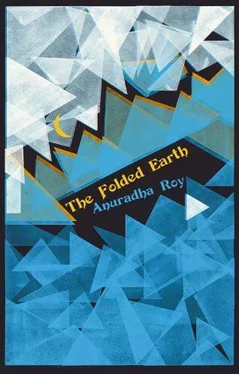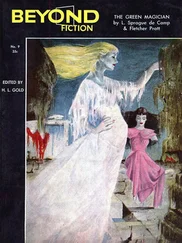That evening, I sat in my veranda with a cup of tea, staring absently at the spot in the sky where the peaks would have been if the heat haze had not rubbed them out. I thought of the ninety-year old Maulana hidden away in Ranikhet’s silent hills, longing for his familiar rivers and swampy heat. My reasons for coming to Ranikhet were strangely similar to the Maulana’s, I thought, we had both been on the run.
My thoughts turned to Veer. From all he had said in passing over the last few months I had constructed a story in my head about his reasons for moving to Ranikhet. He had been an orphan looking for his home, and in his childhood he had found one, after a fashion, in the Light House. Diwan Sahib’s affection had been understated, but combined with the force of his personality it had been enough to make an impact on the lonely child. Veer was a man in search of a father figure and had found one in Diwan Sahib. Nothing else could account for his rough-edged tenderness towards the old man. He was short-tempered at times, he could be brusque or impatient, but when he sat listening for a whole evening to Diwan Sahib’s reminiscences of Surajgarh, or when he came back from Delhi with just the book his uncle had been looking for, it was clear their bond was a deep one. I saw them walking around the garden together sometimes, their heads level with each other, one white-haired and the other dark, each man tall and spare, uncanny in their similarity from the back, and it was oddly moving, as if Veer was a younger version of Diwan Sahib.
I had no doubt about it, Veer had come to Ranikhet to tend to Diwan Sahib in his last years.
When I once tested out this hypothesis on Ama, her response was succinct by her garrulous standards, and enigmatic: “Cares for his uncle, does he?” she said. Then added, “Cares for his uncle’s things, he does, the way he cleans up his papers, more than Himmat Singh has done in years.” Veer had in fact been dusting and sorting shelf after shelf of Diwan Sahib’s work papers in whatever little leisure time he had. In my eyes this made him more considerate than even his gifts of rum and thermal socks.
Now I wondered if there was more to Veer’s presence in Ranikhet. Was he somehow involved with the Army? Was the trekking a front for something else? Was he here merely to position himself as Diwan Sahib’s heir? Or like all the others, had he come after the letters of Edwina and Nehru?
I pushed away my teacup — and with it my suspicions. They were too far-fetched and too petty. Veer often had to leave town in a hurry because he had work in other places. He had never seen the need to explain his every action. There was no more to it.
In a day or two we forgot the helicopters and the Chinese spy, and the terrorist on the run — it had been another of those things the Army needed to do in its secretive, military way. The only person upon whom the helicopters appeared to make an impact was the clerk, whose son Gopal was preparing for trials to join the Army. Every morning, if I was awake that early, I heard the bugle that summoned the army cadets: four blasts at dawn, at intervals of two minutes in order to awaken them. For many months now, the bugle had been followed, moments later, by a light at the clerk’s house. Gopal woke with the cadets. On cold mornings, he emerged hunched in the mist of his own breath, crunching the frost-glassed earth in hawai chappals. At the baked-mud clearing outside his hut he did press-ups followed by at least forty sit-ups, a hundred sometimes. Once there was more daylight he did short sprints up and down the hill, and exercises that he had observed the cadets doing in their training area. Gopal had dreamed of being in the Army for years. Since his childhood he had watched soldiers in rows of khaki and green, hair sheared above their ears, marching down roads, carrying the gear of the day, anything from bedrolls to brooms, buckets, and guns. The soldiers looked at other people as if some invisible but impenetrable barrier cordoned them off. Gopal dreamed of being inside that magic cordon, marching with them.
All this time, his father had been proud of his martial son and boasted that his boy would retire as a Captain — at least. The mystery of the helicopters and the smoke made him take fright. He quarrelled volubly with his son for several days. He now wanted the boy to join the water board instead: they would give him a safe clerical job, he knew they would, a father’s job often passed to the son. “What’s good enough for your father is good enough for you, you fool!” I heard him shout. “The Army is not fun and games. You’ll thank me when you see your friends being sent off to die!”
One inexplicable consequence of the helicopters was that the post did not come for a week. Perhaps the two things were not connected; later we came to know that a postal strike had begun in the plains the same day. But rumbles began after the second day without the post and we heard that our letters were being looked through for clues, that the postmaster was involved in the trouble, and that the post office was the terrorists’ next target. I was unconcerned, but Charu grew more anxious with every passing day. The postman arrived in the late afternoon, sometimes in the evening: ours was his last call because he lived across the stream from us. Charu hovered nearby as the time of his homecoming approached, waiting for him to go limping past. She did not dare ask him if there was a letter. She had only received one letter, in May, soon after Kundan Singh had reached Delhi. Since then, there had been silence. Charu behaved as though an eternity had passed.
“How are you? How is your family? I hope all are well. I am well.” So began the second letter Charu received, which arrived when she had all but given up hope.
I had brought a Hindi primer from school, with the alphabet and brightly-coloured pictures, and some exercise books. After I read out the letter from Kundan, I opened the primer and made Charu find each letter he had used. I made her write the simpler words from his letter into an exercise book. His spellings were often not correct, but at that stage I did not pause over spelling. She sweated and muttered and pushed away strands of hair in her effort to concentrate. She had only the foggiest recollection of reading and writing from her classes of long ago, though there were unexpected shafts of clarity. Charu’s delighted giggles at such times were so infectious that we sounded more like two teenage conspirators than a teacher and her young student. These occasions were not frequent. She had forgotten much of the alphabet; it was coming back, but slowly. She had forgotten all her numbers.
I drew her cartoons of the letters as people and animals. I made her write them again and again. I brought back different books of nursery rhymes and stories from the school’s library cupboard every few days. I made her read the larger print on biscuit packets and soap bars. I was possessed by my task: it had become a mission. I had failed with Charu all those years ago when she was a little girl in my class. This time it would be different! I let no opportunity pass. Once Mr Chauhan came upon us when I was trying to make her read one of his Hindi signs as she grazed her animals, and he exclaimed overjoyed, “I knew it, Mam! I knew it! You have a velvet fist in your iron glove. That day when I told you the peasants need education in civic sense, I thought you were annoyed. I thought you walked away in anger. But no, you took my words to heart. Mam, you have given me a fresh lease of life! Now I will charge ahead with my mission — on a war footing.”
Charu applied herself to this new chore in her life with resolve, and often, when I saw her pressing a piece of chalk to a slate I had bought for her, her skin glowing in the honey-coloured sun of evening, she looked to me less an ordinary peasant girl and more a heroine from a folktale, even if her battle was not with fabulous monsters and wicked witches but only with the alphabet and absence. I would see her sitting in her courtyard with an intent look in her eyes, chin resting on knees, tongue sticking out, writing on the ground with a twig as she waited for the evening fire to catch or the hens to come in. She swore in frustration if, despite re-tracing the letters in the dust with her own fingers, she could not tell what they added up to. The “ba” and “ka” and “pa” confused her. The lines wobbled and dissolved and swam into each other. The letters flipped over as if they had a life of their own. She had to stop herself from tearing the page up in her fury at her own slowness. But still, evening after evening, she came back for her lessons.
Читать дальше












